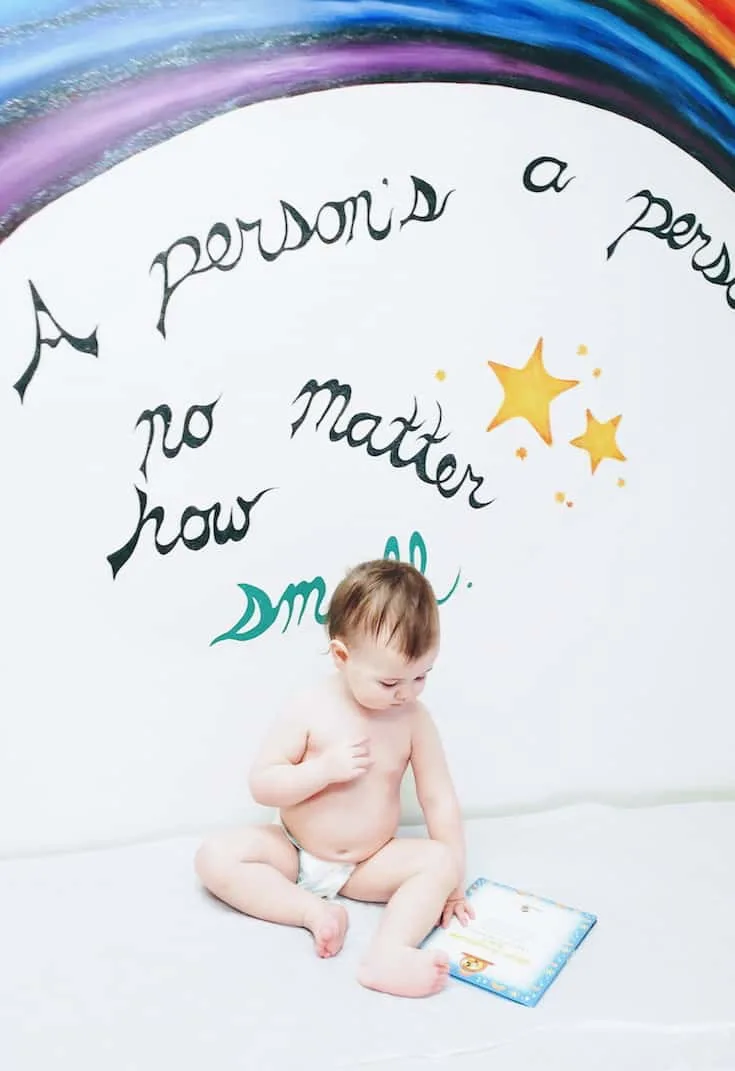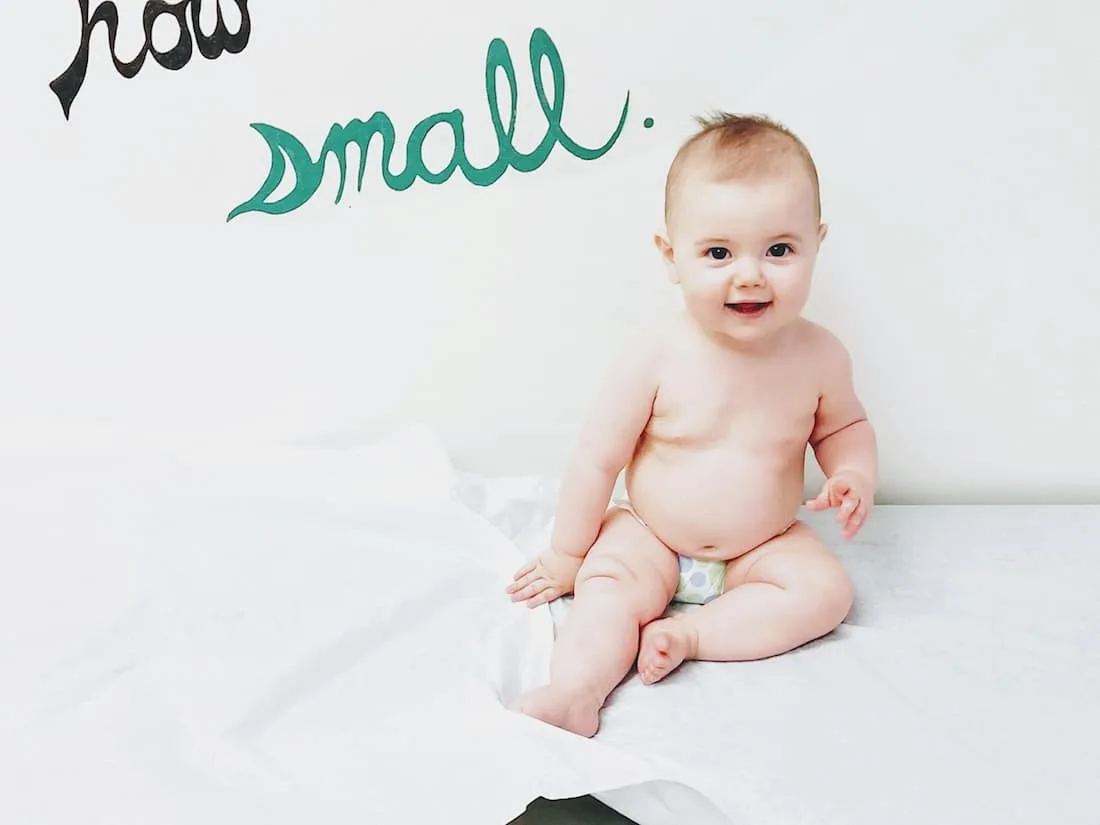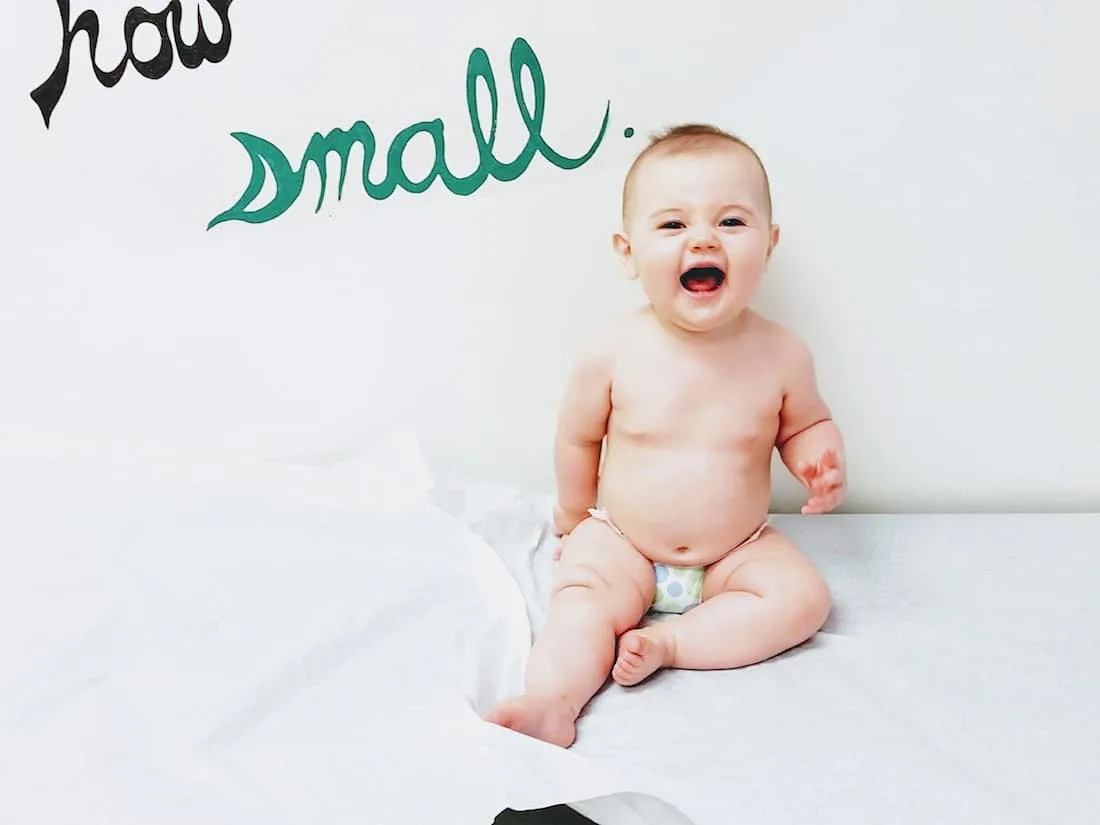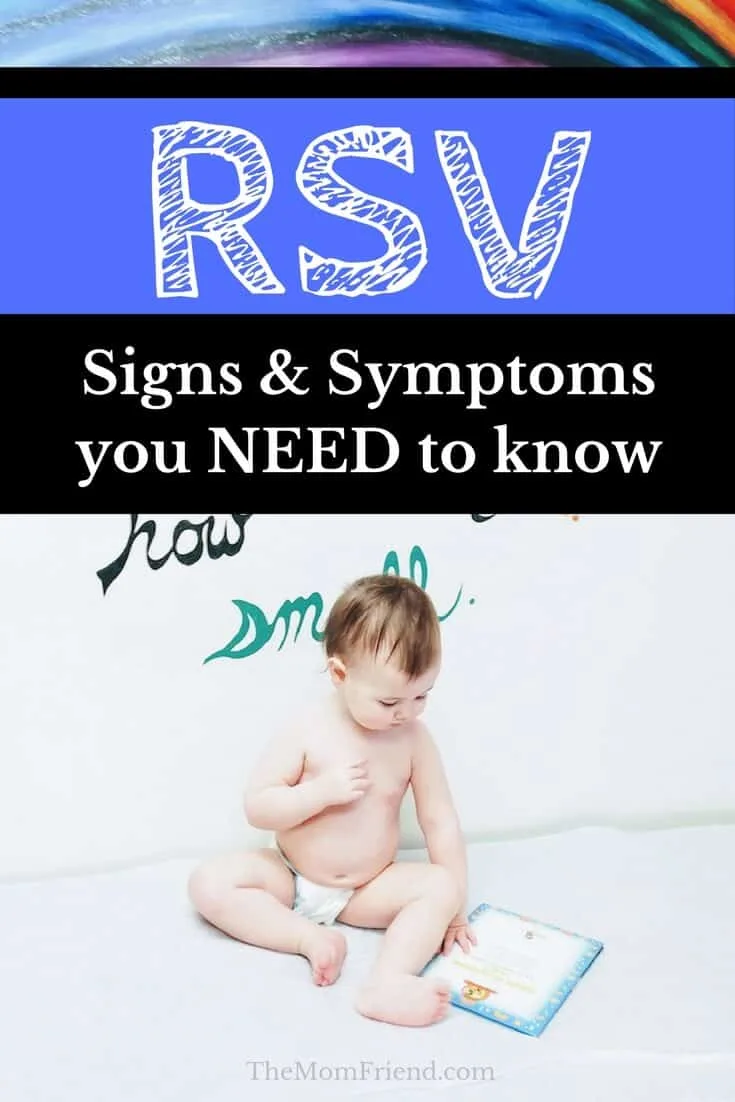This post was sponsored as part of an Influencer Activation for Influence Central and all opinions expressed in my post are my own. Photos by Mary Ware
The first winter as a mom to a newborn has the potential to be one of the scariest times of a new mom’s life. I remember being totally anxious about keeping Charlie warm (but not overheating), safe from germs (but still building up her immune system) and worrying about the smallest sniffles and coughs. I sat for hours watching her breath when she was stuffed up, fought with myself about whether or not to prop her up, take her to the doctor, or just let a cold ride itself out.

One of the hardest things for a new mom to experience is to see their sweet little babe get sick. Whether it is a cold or something much worse, parents often feel helpless and are heaped with worry. I know I did (and still do) as it just breaks my heart to see her in any type of discomfort.
While we can’t lysol every germ away, or keep our kids in a bubble, it is important to know about different illnesses and prevention measures, so we know what is happening, and when to get really concerned. October is RSV Awareness Month, so today I’m sharing key information about Respiratory Syncytial Virus—a highly contagious, seasonal virus that affects almost 100% of infants by the time they turn 2 years old.
Over the past two years I have seen many friends and local families battle ongoing battles with RSV, and it is just heartbreaking. One of Charlie’s favorite little friends from daycare had repeated cases of RSV last winter, and it was so sad knowing how uncomfortable she was, and the impact it had on her family. Serious cases of RSV and other other illnesses take a major toll on a child and their entire family, and knowing what it is can be vital for prevention and identification.
What is RSV?
Respiratory Syncytial Virus is an extremely common virus that rears its ugly head in waves of epidemics typically between November and March. National RSV Awareness Month takes place in October to help educate parents as to the signs and symptoms prior to RSV season. As a mom to a November baby, I was really worried about Charlie getting sick those first few months, since it was right in the middle of winter and RSV season when she was at her youngest.
RSV may appear in many cases the same or similar to a common cold, but in severe cases it can lead to hospitalization, and even death. In fact, RSV is the leading cause of infant hospitalizations in the U.S.—so it is definitely something to take seriously!
Signs and Symptoms of RSV
Much of the time, RSV results in a minor respiratory infection and appears to look like the cold or flu, and will resolve itself after a short time. However, in some babies, and especially those deemed high-risk, RSV can become much more of a serious infection.
Symptoms of Serious RSV Disease include:
- Coughing or wheezing that does not stop;
- Troubled or fast breathing;
- Gasping for breath;
- Area around the mouth or fingernails turning a bluish color;
- Unusual tiredness or lethargy;
- Fever (especially if higher than 100.4 degrees F (rectal) in infants under 3 months of age).
Breathing difficulties due to RSV can lead to hospitalizations for infants, and serious RSV infections have been associated with asthma and wheezing later in life as well.

Who is considered high-risk for RSV?
Babies born prematurely (at or prior to 35 gestational weeks) are at a high risk of developing serious RSV disease—and other serious or chronic lung or respiratory infections—due to often being born with underdeveloped lungs, and lacking infection-fighting antibodies. Preterm infants less than 6 months old are twice as likely to be hospitalized for issues related to RSV than those born at full-term.
Treatment & Prevention of RSV
One of the major issues with RSV is that there is no treatment currently available for it, and therefore has to run its course. Preventing RSV is especially important then, to avoid having to deal with the symptoms and potential for hospitalization.
Here are some ways to help keep your little ones protected:
- Ensure that visitors and other people around your child wash their hands upon entering the house and before engaging with your infant (tip—keep bottles of hand sanitizer around to make it quick and painless!).
- Get in the habit of washing and sanitizing toys, personal items and surfaces regularly, to cut down on germ exposure.
- It’s ok to say no—reschedule visits if needed to keep your infant away from family members or other guests who may be sick. Consider avoiding large crowds if concerned about exposure.
- Finally, be sure to talk to your doctor to find out if your child is considered to be high-risk for serious RSV disease, and what additional precautions you should take.
As moms our babies count on us to keep them safe, and to take care of them when they are sick. Though it may seem scary, it’s true when they say “Knowledge is Power”.


Visit the Little Lungs website to learn more, and be sure to pin this post & the infographic above listing all the symptoms and tips referenced here to refer back to later on .
Share this post with your friends on social media too so they can learn about what RSV is and the signs & symptoms to watch out for!
Have you had a child that was diagnosed with RSV? Share your story below to help other moms. If not, what steps do you take to keep your little ones protected from illness? Leave a comment letting me know below!
![]()
You may also enjoy:


Joanna Clute
Wednesday 11th of October 2017
Babies, especially the first one, can be SO scary. Grateful for this info because I know it will help many!
The Sprouting Minds
Wednesday 11th of October 2017
RSV is so scary! My niece had it when she wasn’t even a month old (was born in December). I remember my sister in law telling me how scared she was and how helpless she felt. Luckily, my niece’s case was never serious. I do know a few babies who had to be admitted. So glad for this month being dedicated to RSV awareness!
platformsandpacifiers
Wednesday 11th of October 2017
This is so scary! So many precautions can be made and sometimes our little ones STILL end up sick! I was a stickler for making people wash their hands before they held baby and not letting people kiss them!
Nostalgia Diaries
Tuesday 10th of October 2017
My daughter got RSV when she was about 6 months old, and it was so scary. To this day, when she gets a cold, you can still hear a rattle in her chest. Thanks for sharing this important information!
April@loveourreallife
Tuesday 10th of October 2017
RSV is such a scary thing! Thanks for the informative post!